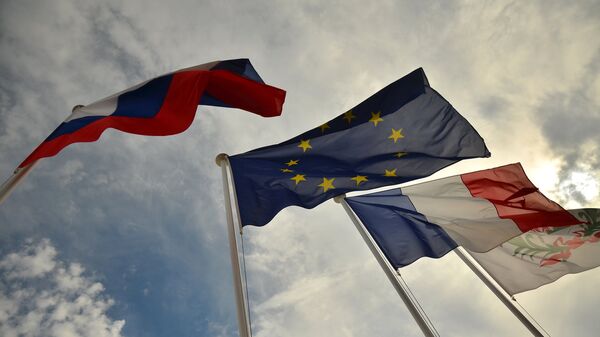“There must be a dialogue … there must be an honest discussion, a straightforward discussion about whether the sanctions have been successful or not and let see things factually – whether it helped the European economies, whether it helped Russian economy or whether it helped to go down with the Russian economy, whether it helped to implement the Minsk agreements and so on… And after giving honest answers to honest questions, we should make decisions about our future,” he said in the interview published on Friday.
The minister however stressed that Budapest would never make decisions that would threaten to “break the [bloc’s] unity.”
READ MORE: EU Prolongs Sanctions Against Russia "Over Ukrainian Conflict" by 6 Months
Szijjarto added that Rome shared Budapest’s opposition to the automatic prolongation of the sanctions regime and expressed hope that the two countries could represent a unified position in the union.
"Now the current Italian government seems to represent the same position — no automatic roll-over, discussion must be made. And since they are a strong and big G7 country, it will be much easier for smaller EU member states to represent this position together with the big one," he suggested.
The European Union first introduced its restrictions against Russia in 2014 amid the eruption of the Ukraine conflict and Crimea’s reunification with Russia as a result of a referendum. Russia has repeatedly denied any interference in the Ukraine crisis, saying it was not a party to the conflict. As a retaliatory move, Moscow slapped food embargo on EU states.



